Traveling is a great way to explore new cultures, try new foods, and make unforgettable memories. However, it's not uncommon for your skin to suffer while traveling. From sunburns to insect bites, and contact dermatitis to tropical infections, there are various skin rashes and conditions that travellers might encounter during their journeys. In this blog post, we will discuss the most common skin rashes experienced during travel, how to prevent them, and what to do if you get one.
Common Skin Rashes Experienced During Travel
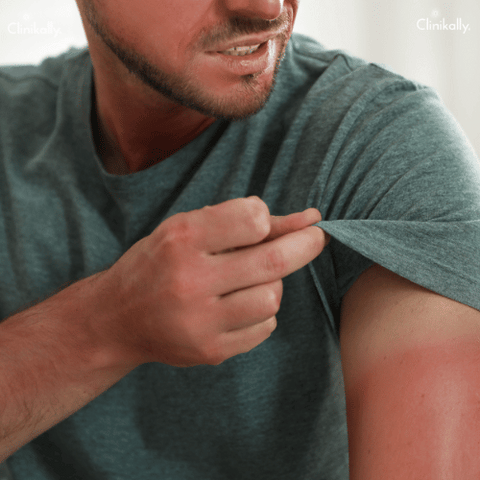
While traveling, you might encounter different skin rashes that you're not used to. Here are the seven most common ones:
-
Sunburn: Sunburn is caused by overexposure to the sun's UV rays. It can range from mild redness to severe blisters and peeling skin.
-
Insect Bites: Bites from mosquitoes, ticks, fleas, and other insects can cause redness, itching, and sometimes even pain.
-
Contact Dermatitis: This is an allergic reaction caused by contact with an irritant or allergen, such as poison ivy or nickel.
-
Heat Rash: Heat rash occurs when sweat ducts become blocked, leading to redness and itching.
-
Swimmer's Itch: This is a type of rash caused by an allergic reaction to parasites found in fresh or saltwater.
-
Fungal Infections: Fungal infections are caused by fungi and can lead to redness, itching, and flaking skin. They are more common in tropical and humid climates.
-
Allergic Reactions: Allergic reactions can be caused by various triggers, including food, medication, insect bites, and contact with an allergen.
Now, let's discuss how to prevent and manage these skin rashes.
Sunburn and Sun Protection
Sunburn is a common skin issue, especially in hot and sunny destinations. To prevent sunburn, apply sunscreen with an SPF of 30 or higher to all exposed skin, including your face, neck, and hands. Reapply every two hours or after swimming or sweating. Wear protective clothing, such as hats and long-sleeved shirts, and try to avoid being in the sun during peak hours, between 10 a.m. and 4 p.m.
If you do get sunburned, take cool showers or baths, use aloe vera or other soothing lotions, and drink plenty of water to stay hydrated. Over-the-counter pain relievers like ibuprofen or acetaminophen can help alleviate discomfort.
Insect Bites and Bug Repellent Strategies
To prevent insect bites, use a bug repellent containing DEET, picaridin, or IR3535. Wear long-sleeved shirts and pants, tuck pants into socks, and avoid wearing perfumes or scented lotions. Check your skin for ticks and other insects after spending time outdoors.
If you do get bitten, wash the affected area with soap and water, apply a cold compress, and take an antihistamine to relieve itching. If you develop a fever or other symptoms, seek medical attention as soon as possible.
Contact Dermatitis: Causes and Prevention
Contact dermatitis can be caused by exposure to various irritants and allergens, such as certain plants, metals, and chemicals. To prevent contact dermatitis, avoid touching known irritants and allergens, wear protective gloves when necessary, and use mild soaps and detergents.
If you do develop contact dermatitis, wash the affected area with soap and water, apply a cool compress, and take an antihistamine to relieve itching. Topical creams and ointments containing corticosteroids or other anti-inflammatory agents can also help alleviate symptoms.
Climate-Related Skin Reactions
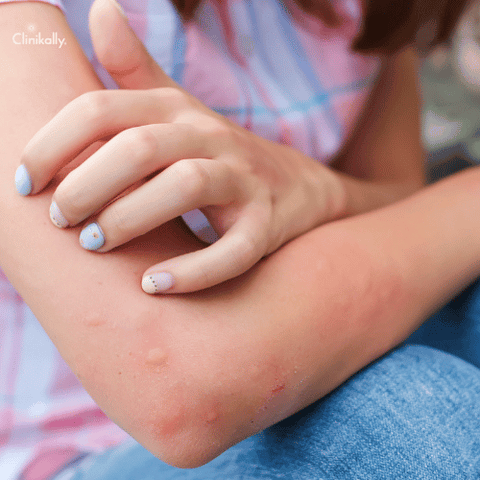
Climate-related skin reactions are common in hot and humid destinations. Here are two types of skin rashes that travellers might encounter:
Heat Rash: Identifying and Managing
Heat rash occurs when sweat ducts become blocked, leading to redness and itching. To prevent heat rash, wear loose-fitting and breathable clothing, use fans or air conditioning to stay cool, and take cool showers or baths.
If you do develop heat rash, avoid scratching the affected area, wear loose clothing, and apply a cool compress. Topical creams and ointments containing calamine or other soothing ingredients can also help alleviate symptoms.
Swimmer's Itch: Causes and Remedies
Swimmer's itch is a type of rash caused by an allergic reaction to parasites found in fresh or saltwater. To prevent swimmer's itch, avoid swimming in areas with known outbreaks, towel dry your skin after swimming, and apply a waterproof sunscreen to protect your skin.
If you do develop swimmer's itch, take a cool shower or bath and apply a topical cream containing corticosteroids or antihistamines to relieve itching.
Infections and Skin Conditions Abroad
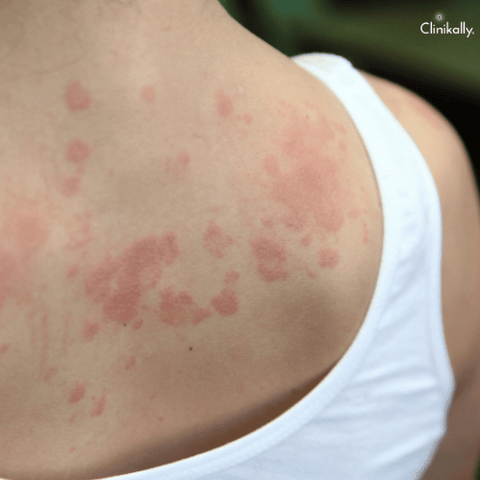
Traveling to tropical destinations can put you at risk for a variety of skin infections and conditions. Here are two common skin issues to be aware of, along with tips for preventing and treating them:
Tropical Fungal Infections: Identification and Treatment
Tropical fungal infections are caused by fungi and are more common in tropical and humid climates. To prevent fungal infections, keep your skin clean and dry, wear breathable clothing, and avoid sharing towels or other personal items.
If you do develop a fungal infection, seek medical attention as soon as possible. Treatment typically involves topical or oral antifungal medications.
Travel Vaccinations and Skin Infection Prevention
To prevent skin infections and other illnesses while traveling, it's important to get the necessary vaccinations before you go. Talk to your doctor or a travel medicine specialist about which vaccinations you need for your destination.
Tips for Protecting Your Skin While Traveling
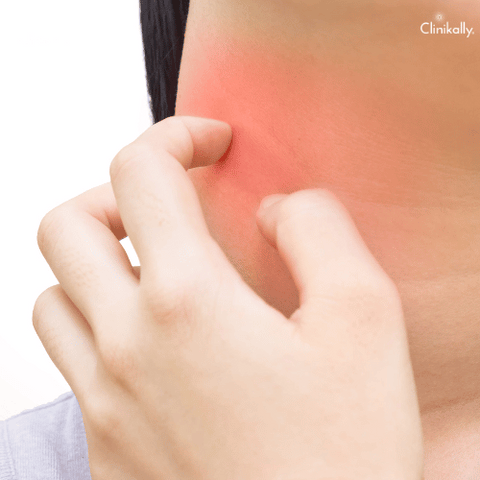
While it's impossible to completely avoid the risk of skin issues while traveling, there are many things you can do to protect your skin and prevent problems from occurring. Here are some tips for maintaining healthy skin while on the go:
Travel Health Essentials
In addition to vaccinations, there are several other travel health essentials to keep in mind. Pack a first aid kit with supplies like bandages, antiseptic wipes, and pain relievers. Use hand sanitizer or wash your hands frequently to prevent the spread of germs. Stay hydrated by drinking plenty of water and avoiding alcohol and caffeine, which can dehydrate you.
First Aid for Skin Issues on the Go
If you develop a skin rash or other issue while traveling, it's important to have some basic first aid supplies on hand. Pack items like hydrocortisone cream, antihistamines, and aloe vera or other soothing lotions. If your symptoms are severe or don't improve after a few days, seek medical attention.
The Importance of Travel Insurance and Skin Health
When it comes to maintaining good skin health while traveling, it's important to also consider the role of travel insurance. Here are two important things to keep in mind when it comes to travel insurance and skin health:
Choosing the Right Travel Insurance for Skin Concerns
Travel insurance can provide peace of mind and financial protection in case of unforeseen events like illness or injury. When choosing travel insurance, look for a plan that covers emergency medical expenses, including those related to skin issues. Consider purchasing a plan with medical evacuation coverage if you're traveling to a remote area.
Navigating Healthcare Abroad for Skin Issues
If you do need medical attention while traveling, it's important to know how to navigate the healthcare system in your destination. Research local hospitals and clinics before you go, and make sure you have a list of emergency contacts and important medical information with you at all times.
Expert Advice for Maintaining Skin Health During Travel
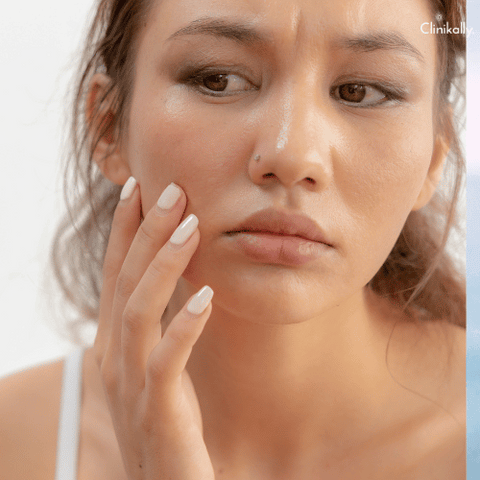
To maintain healthy skin while traveling, follow these expert tips:
-
Stay hydrated by drinking plenty of water
-
Use sunscreen with an SPF of 30 or higher and reapply every two hours
-
Wear protective clothing and use bug repellent to prevent insect bites
-
Avoid touching irritants and allergens that can cause contact dermatitis
-
Keep your skin clean and dry, especially in humid climates
-
Use moisturizer to keep your skin hydrated and prevent dryness
-
Avoid hot showers and baths, which can dry out your skin
-
Consider bringing a portable air purifier to help with air quality in hotel rooms or other accommodations
-
Avoid using harsh soaps or cleansers, which can strip your skin of its natural oils
In conclusion, skin rashes and other skin issues can be a common occurrence during travel, especially in tropical and humid climates. However, with proper precautions, you can protect your skin and prevent these issues from occurring. Sun protection, bug repellent, and protective clothing are all essential, as are vaccinations and travel insurance. If you do experience a skin rash or other issue while traveling, it's important to have a first aid kit on hand and seek medical attention if necessary. By following these expert tips and taking the necessary precautions, you can enjoy your travels while maintaining healthy skin.
















